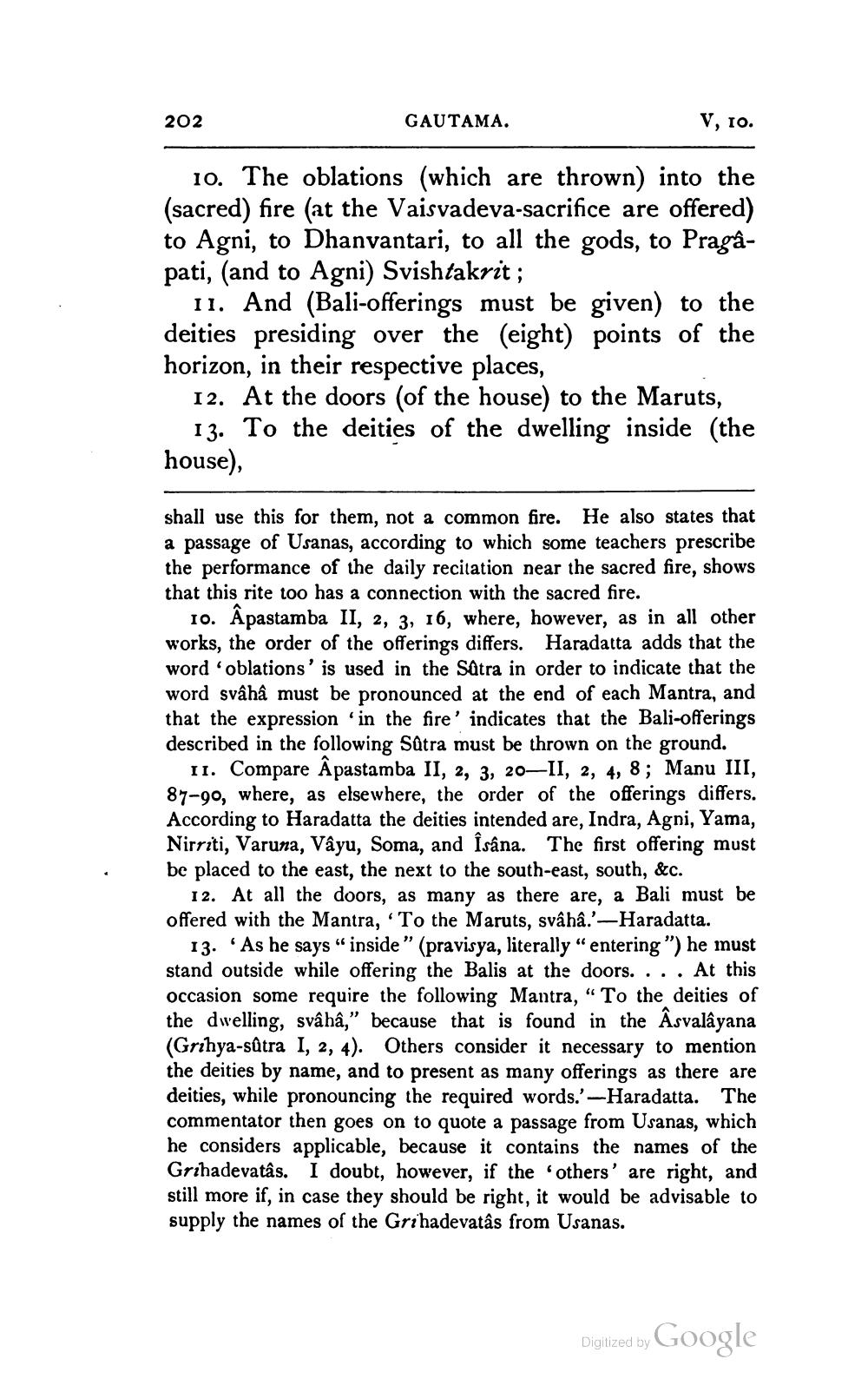________________
202
GAUTAMA.
V, 10.
10. The oblations (which are thrown) into the (sacred) fire (at the Vaisvadeva-sacrifice are offered) to Agni, to Dhanvantari, to all the gods, to Pragâpati, (and to Agni) Svishtakrit;
11. And (Bali-offerings must be given) to the deities presiding over the (eight) points of the horizon, in their respective places,
12. At the doors (of the house) to the Maruts, 13. To the deities of the dwelling inside (the house),
shall use this for them, not a common fire. He also states that a passage of Usanas, according to which some teachers prescribe the performance of the daily recitation near the sacred fire, shows that this rite too has a connection with the sacred fire.
10. Âpastamba II, 2, 3, 16, where, however, as in all other works, the order of the offerings differs. Haradatta adds that the word 'oblations' is used in the Sutra in order to indicate that the word svâhâ must be pronounced at the end of each Mantra, and that the expression in the fire' indicates that the Bali-offerings described in the following Sûtra must be thrown on the ground.
11. Compare Âpastamba II, 2, 3, 20-II, 2, 4, 8; Manu III, 87-90, where, as elsewhere, the order of the offerings differs. According to Haradatta the deities intended are, Indra, Agni, Yama, Nirriti, Varuna, Vâyu, Soma, and Îsâna. The first offering must be placed to the east, the next to the south-east, south, &c.
12. At all the doors, as many as there are, a Bali must be offered with the Mantra, 'To the Maruts, svâhâ.'-Haradatta.
13. As he says "inside" (pravisya, literally "entering ") he must stand outside while offering the Balis at the doors. . . . At this occasion some require the following Mantra, "To the deities of the dwelling, svâhâ," because that is found in the Asvalâyana (Grihya-sûtra I, 2, 4). Others consider it necessary to mention the deities by name, and to present as many offerings as there are deities, while pronouncing the required words.'-Haradatta. The commentator then goes on to quote a passage from Usanas, which he considers applicable, because it contains the names of the Grihadevatâs. I doubt, however, if the 'others' are right, and still more if, in case they should be right, it would be advisable to supply the names of the Grihadevatâs from Usanas.
Digitized by
Google




